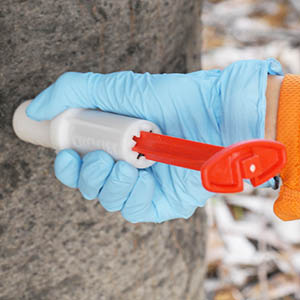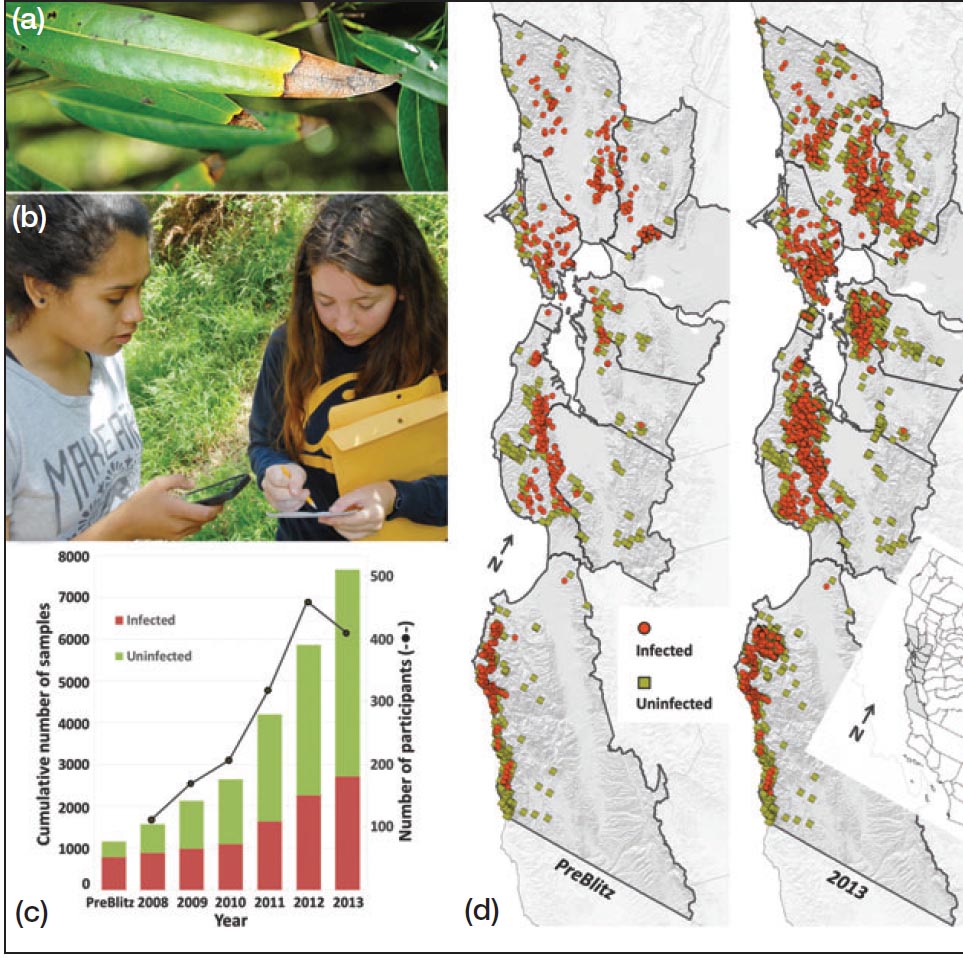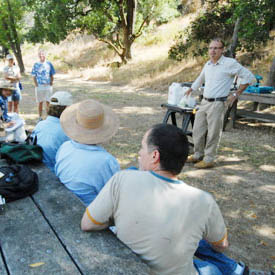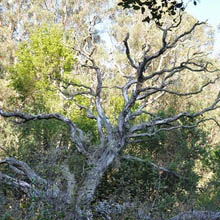#BigGive

UC Berkeley’s 2nd Annual Big Give! https://biggive.berkeley.edu/ #CalBigGive #seethebiggerpicture
matteolab.org

UC Berkeley’s 2nd Annual Big Give! https://biggive.berkeley.edu/ #CalBigGive #seethebiggerpicture

Disclaimer: Mention of any company, trade name, or commercial product does not constitute endorsement by the University of California or recommendation for use. Always follow the manufacturer’s directions, restrictions, and precautions on the product label.

Audio segment from KAZU news 5/22/15.


Engaging citizen scientists is becoming an increasingly popular technique for collecting large amounts of ecological
data while also creating an avenue for outreach and public support for research. Here we describe a unique
study, in which citizen scientists played a key role in the spatial prediction of an emerging infectious disease. The
yearly citizen-science program called “Sudden Oak Death (SOD) Blitz” engages and educates volunteers in detecting
the causal pathogen during peak windows of seasonal disease expression. We used these data – many of
which were collected from under-sampled urban ecosystems – to develop predictive maps of disease risk and to
inform stakeholders on where they should prioritize management efforts. We found that continuing the SOD
Blitz program over 6 consecutive years improved our understanding of disease dynamics and increased the accuracy
of our predictive models. We also found that self-identified non-professionals were just as capable of detecting
the disease as were professionals. Our results indicate that using long-term citizen-science data to predict the
risk of emerging infectious plant diseases in urban ecosystems holds substantial promise.

UC Berkeley News Service – Efforts to predict the emergence and spread of sudden oak death, an infectious tree-killing disease, have gotten a big boost from the work of grassroots volunteers. A joint study reveals the power of citizen science in SOD Blitz, a survey project in which volunteers are trained to identify symptoms of sudden oak death. Led by Matteo Garbelotto at UC Berkeley and Ross Meentemeyer at North Carolina State University, the study was published today (Friday, May 1) in the journal Frontiers in Ecology and the Environment.



